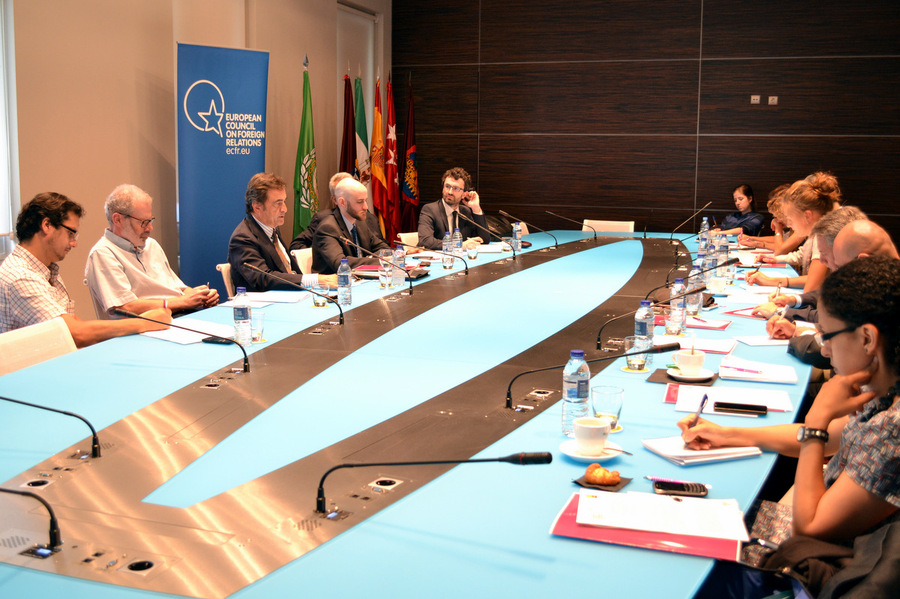Fourth meeting of the ECFR Work Group on Egypt
The European Council for Foreign Relations is holding a new meeting at Casa Árabe in Madrid
June 26, 2014
MADRID
On this occasion, the participating speakers included Fidel Sendagorta Gómez del Campillo, Ambassador of Spain in Egypt from 2010 to last May 2014, and Aziz el-Kaissouni, a visiting researcher of ECFR Middle East and North Africa program. In the debate, which was guided by Chatham House, other representatives of the Spanish government, embassies and analysts participated, sharing their opinions on the situation and potential changes in Egypt after the recent confirmation of El Sisi as the country’s president.
The participants highlighted that voters seem to be seeking stability at least in the elections, though this victory has been conditioned by the lack of an effective opposition, both in politics and in the media. The result is the strengthening of the so-called “deep state” and the military complex, in addition to a setback in the fragile freedoms which had been achieved in recent years. Also of concern is the lack of any steps towards a possible reconciliation with the Muslim Brotherhood, victims of a campaign of repression and political marginalization. We have yet to see whether the State will be able to make up for the network of social aid which the Brothers had in place, and which the regime itself is dismantling, with the impact that this will have on the poorest people’s welfare. After seven times going to the polls in three years, the lives of Egyptians do not seem to have improved.
During the debate, a closer look was taken at some of the challenges of a country which is suffering from relentless demographic growth, very sensitive to shocks on its economy, which is now dependent on financial aid from the Gulf. However, in order to achieve economic recovery, Egypt needs its international partners to bring investment and tourism back to the country. For now, these partners only seem interested in cooperating on the topic of security, but this short-term outlook will not promote stability in the long run. Today, it is difficult for role-players like the EU and its member States to recover their lost credibility due to a lack of decisiveness and coherence since the fall of Mubarak. Nonetheless, their greater involvement, along with that of other regional role-players such as the Arab League and African Union, is crucial to improve the situation both inside of Egypt and in its surrounding regions, with a special focus on Libya.
Further information - ECFR

